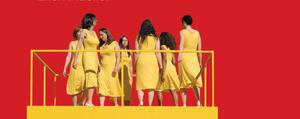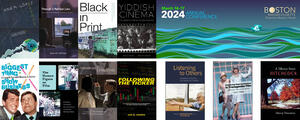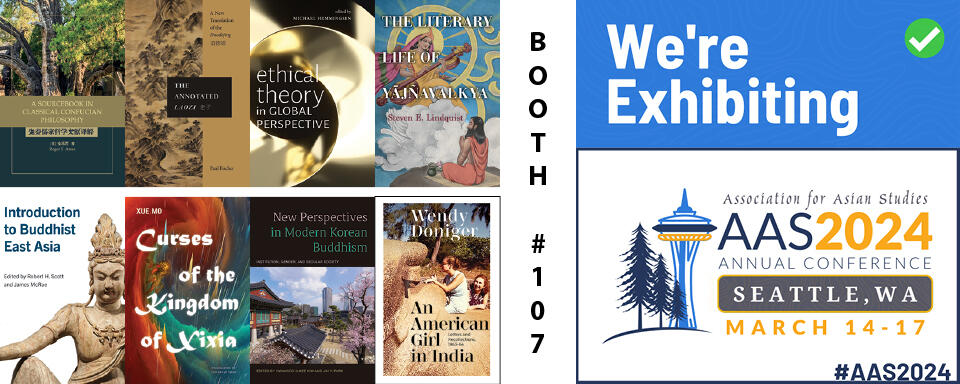
AAS 2024 Preview
Titles to Be on the Look Out for at this Year's Annual Meeting!
SUNY Press will be exhibiting at the Association for Asian Studies annual meeting in Seattle, WA, March 15-17, 2024. The largest gathering of individuals devoted to the study of Asia, bringing together attendees from across the globe and connecting with scholars, students, librarians, and historians. Come visit us in booth 107 to browse our books and journals!
Attending the conference virtually or perhaps can’t make it? Check out our virtual book exhibit here for the same great books and conference discount.
Panels Happening at the Conference:
Friday, March 15th
2:00 pm - Arnika Fuhrmann, author of Teardrops of Time: Buddhist Aesthetics in the Poetry of Angkarn Kallayanapong, "Borrowed Space, Speculative Time: Economic Subjects in Global Hong Kong Literature and Cinema"
Saturday, March 16th
8:30 am - Hiromi Tsuchiya Dollase, author of Age of Shōjo: The Emergence, Evolution, and Power of Japanese Girls' Magazine Fiction, "Gendered Imaginaries of War in Modern Japanese Popular Culture"
2:00 pm - Priti Joshi, author of Empire News: The Anglo-Indian Press Writes India, "Food, Farce, and Facsimile: Visual Culture in Nineteenth-Century Indian Print"
New Books to Look for at the Booth:
A Sourcebook in Classical Confucian Philosophy, by Roger T. Ames, provides original classical Chinese texts and their translations, offering readers the opportunity for comparative study. The goal is to facilitate a deeper understanding of Confucian philosophy through cultural hermeneutics and appropriation of the original terminologies.
An American Girl in India: Letters and Recollections, 1963–64, by Wendy Doniger, offers a portrait of India as seen through the eyes of a sensitive, sharp-eyed, and witty young scholar in the early 1960s.
The Annotated Laozi: A New Translation of the Daodejing, by Paul Fischer. The Laozi, or Daodejing, is a revered ancient Chinese text that has had a profound impact on East Asian cultural and religious history. Paul Fischer's annotated translation provides clarity and insight into this timeless masterpiece, making it accessible to modern audiences.
Ethical Theory in Global Perspective, edited by Michael Hemmingsen, introduces key Western ethical theories, along with moral theories from East Asian, South Asian, and African philosophical traditions. This textbook is valuable for educators seeking to diversify their ethical theory curricula in a clear, approachable way.
Xue Mo's novel, Curses of the Kingdom of Xixia, delves into the history, religion, and customs of northwestern China during the Sino-Tibetan kingdom of Xixia's reign. Through a mix of historical events and semi-fictional characters, the novel explores themes of good and evil, beauty and impermanence.
New in Paperback:
New Perspectives in Modern Korean Buddhism: Institution, Gender, and Secular Society, edited by Hwansoo Ilmee Kim & Jin Y. Park, challenges traditional historiographies by examining individual experiences, institutional dimensions, and transnational influences. It explores perennial existential concerns, women's roles, clerical marriage, and engagement with secular society, emphasizing the complexity of modern Korean Buddhism.
Introduction to Buddhist East Asia, edited by Robert H. Scott & James McRae, provides an in-depth look at East Asian Buddhism, with a focus on China, Korea, and Japan. It includes a historical introduction, creative teaching methods for college professors, and interdisciplinary chapters that explore thematic connections with other academic fields.
Recent Author Interviews to Check Out:
Michael Baltutis' book The Festival of Indra: Innovation, Archaism, and Revival in a South Asian Performance details the textual and performative history of an important South Asian festival and its role in the development of classical Hinduism. Drawing on various genres of Sanskrit textual sources--especially the epic Mahābhārata--the book highlights the innovative ways that this annual public festival has supported the stable royal power responsible for the sponsorship of these texts. More than just a textual project, however, the book devotes significant ethnographic attention to the only contemporary performance of this festival that adheres to the classical Sanskrit record: the Indrajatra of Kathmandu, Nepal. Here, Indra's tall pole remains the festival's focal point, though its addition of the royal blessing by Kumari, the "living goddess" of Nepal, and the regular presence of the fierce god Bhairav show several significant ways that ritual agents have re-constructed this festival over the past two thousand years. Listen UP for more!
Blending travelogue, history, and archaeology, Searching for Ashoka: Questing for a Buddhist King from India to Thailand unravels the various avatars of India's most famous emperor, revealing how he came to be remembered—and forgotten—in distinctive ways at particular points in time and in specific locations. Through personal journeys that take her across India and to various sites and cities in Sri Lanka, Myanmar, and Thailand, archaeologist Nayanjot Lahiri explores how Ashoka's visibility from antiquity to the modern era has been accompanied by a reinvention of his persona. Although the historical Ashoka spoke expansively of his ideas of governance and a new kind of morality, his afterlife is a jumble of stories and representations within various Buddhist imaginings. By remembering Ashoka selectively, Lahiri argues, ancient kings and chroniclers created an artifice, constantly appropriating and then remolding history to suit their own social visions, political agendas, and moral purposes. Listen UP for more!
In The Literary Life of Yājñavalkya, forthcoming in paperback in June, Steven E. Lindquist investigates the intersections between historical context and literary production in the "life" of Yājñavalkya, the most important ancient Indian literary figure prior to the Buddha. Drawing on history, literary studies, ritual studies, Sanskrit philology, narrative studies, and philosophy, Lindquist traces Yājñavalkya’s literary life—from his earliest mentions in ritual texts, through his developing biography in the Upaniṣads, and finally to his role as a hoary sage in narrative literature—offering the first detailed monograph on this central figure in early Indian religious and literary history. Listen UP for more!
Tulasi Srinivas' edited volume Wonder in South Asia: Histories, Aesthetics, Ethics, forthcoming in paperback in June, brings together historians and ethnographers of South Asia, including leading and emerging scholars, to consider the place and meaning of wonder in such varied joyful, tense, and creative sites and moments as Sufi music performances in Gujarat, Tamil graveyard processions, trans women's charitable practices, Kipling's Orientalist tales, village Kuchipudi dance performances, and Rajasthani healing shrines. Offering a synthetic and scholarly reading of wonder that speaks to the political, aesthetic, and ethical worlds of South Asia, these essays redefine the nature and meaning of wonder and its worlds. Taken together, they provide an invaluable research tool for those in the fields of Asian religion, religion in context, and South Asian religions in particular. Listen UP for more!
Albert Welter's book The Future of China's Past: Reflections on the Meaning of China's Rise examines how China's traditional culture is being reinvented and manipulated for political purposes. Like no time before in its recent history, and certainly at no time in the history of the People's Republic, China is being shaped in terms of its past, but which past--Confucianism, Legalism, Daoism, Buddhism--or combination of pasts is being held up as the model? Given its growing economic, political, and cultural significance, it is incumbent upon us to take China's rise seriously, yet perspectives involving modern and contemporary geopolitical and intrastate dynamics are insufficient, on their own, for understanding China's rise, and the same holds true for economic analyses, however pertinent. Instead, this book looks at current engagements with models of China's past, introducing the four traditional lenses of Chinese thought and reflecting on their potential relevance for China's--and the world's--future. Listen UP for more!
We hope to see you in Seattle!
Books Mentioned In This Post
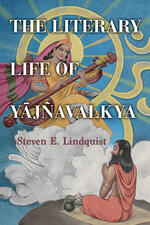
The Literary Life of Yājñavalkya

Wonder in South Asia
Histories, Aesthetics, Ethics
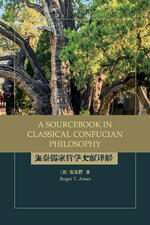
A Sourcebook in Classical Confucian Philosophy
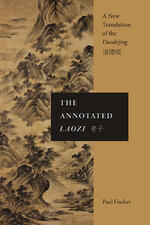
The Annotated Laozi
A New Translation of the Daodejing
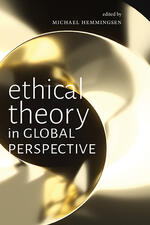
Ethical Theory in Global Perspective
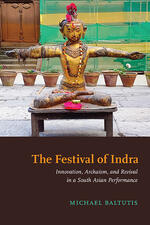
The Festival of Indra
Innovation, Archaism, and Revival in a South Asian Performance
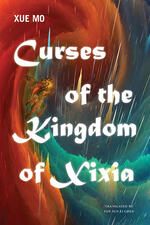
Curses of the Kingdom of Xixia
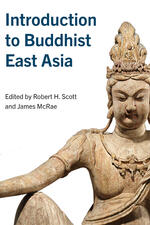
Introduction to Buddhist East Asia
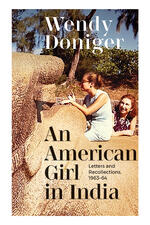
An American Girl in India
Letters and Recollections, 1963–64
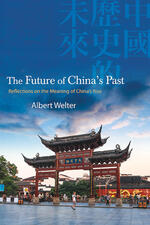
The Future of China's Past
Reflections on the Meaning of China’s Rise
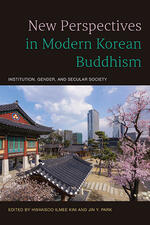
New Perspectives in Modern Korean Buddhism
Institution, Gender, and Secular Society
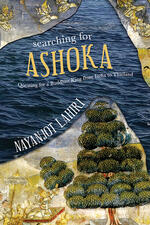
Searching for Ashoka
Questing for a Buddhist King from India to Thailand
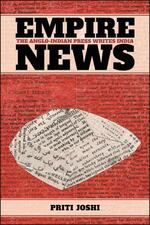
Empire News
The Anglo-Indian Press Writes India
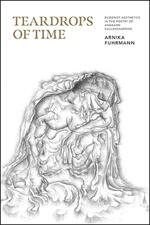
Teardrops of Time
Buddhist Aesthetics in the Poetry of Angkarn Kallayanapong
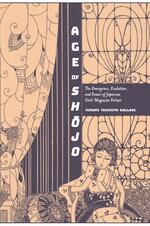
Age of Shōjo
The Emergence, Evolution, and Power of Japanese Girls' Magazine Fiction
